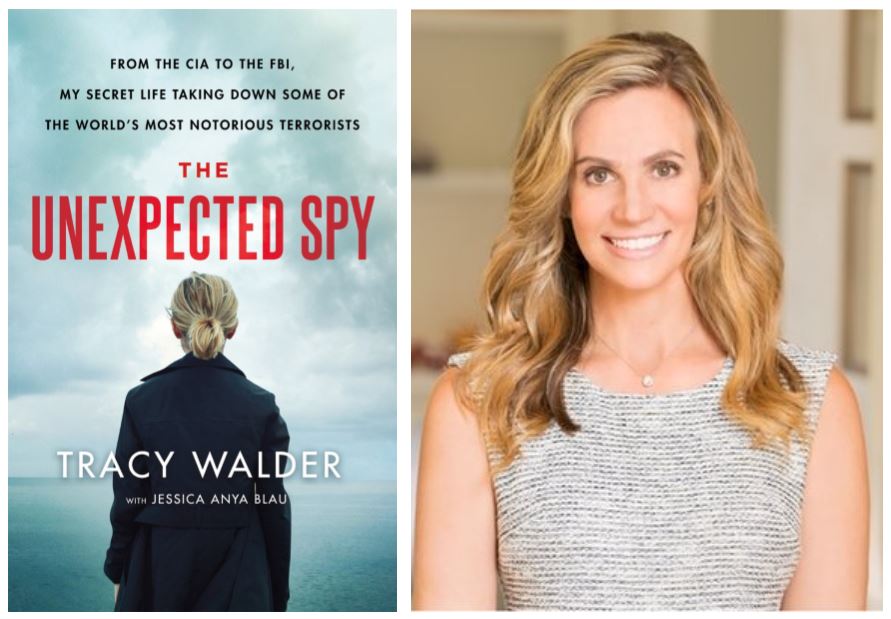
Tracy Walder went straight from her college sorority to to the CIA, where she hunted terrorists and WMDs. In her memoir, THE UNEXPECTED SPY: From the CIA to the FBI, My Secret Life Taking Down Some of the World’s Most Notorious Terrorists, she tells the story of her life in the CIA and, later, the FBI–from high-security, steel-walled rooms in Virginia, to searching the world for Weapons of Mass Destruction, to battling rampant sexism.
Now, Tracy joins us to share how librarians and operatives aren’t so different after all!
It’s Hard to Tell the Difference between a Librarian and a CIA Operative
I’ve always been a reader. So I’ve always loved libraries. And just about everyone who frequents libraries understands that librarians are some of America’s greatest heroes. There are very few problems that can’t be solved after doing the right reading and research in a library.
Here are some of the ways in which librarians are just like the people I worked with in the CIA and the FBI.
- Librarians never make broad assumptions based on exterior appearances. The foreign spies I helped nab while I was in the FBI couldn’t have looked less dangerous. They were a middle-aged, married couple living in the suburbs. On Saturdays they visited the hardware store. They led quiet, modest lives and rarely spent money beyond the essentials. A person off the street might have sent them to the Homemaking section. Most librarians, however, would not have taken the chinos and hairbands at face value. Librarians, like, spies, understand that clothing is often a costume and should not always be believed.
- Librarians don’t take people only at their word. When I was interrogating terrorists, I would pull out as much information from them as I could. But these were people who stated, factually, that they wanted me and others like me dead. So I took in what they said, but I also “read” their facial expressions, posture, avoiding or deliberate eye contact. I noticed where they put their hands, where they looked when they spoke, how they spoke, and what words they chose to use. In this way, I was able to puzzle out much more than what was stated. Librarians, too, are rarely fooled. They see that the girl in the braids, the one looking longingly at the sports section, really does not want to follow her friends to the American Girl Doll books.
- Librarians and undercover operatives both know that there is no stress that can’t be temporarily relieved by a good book. When I was working in black sites in the Middle East there was no delineation between work (tracking terrorists and weapons of mass destruction) and time off. I lived, breathed, dreamed, ate and sweated my work. Except when I read. In my private trailer, in a barren, rocky desert, the only way to stop my mind from obsessively focusing on the high ranking al-Qaeda member who I’d been tracking for weeks, was to enter an entirely different world. I remember reading MYSTIC RIVER by Dennis Lehane while I was overseas. It’s an intense story where a lot of heavy, bad stuff goes down. But it was heavy, bad stuff that was so different from what I was dealing with that it momentarily, when I was in the book, relieved my spinning brain from the tasks at hand.
THE UNEXPECTED SPY is available to download from Edelweiss now.
“Walder’s fast-paced and intense narrative opens a window into life in two of America’s major intelligence agencies.”–Publishers Weekly, starred review

Well, this librarian concurs 110%! 🙂